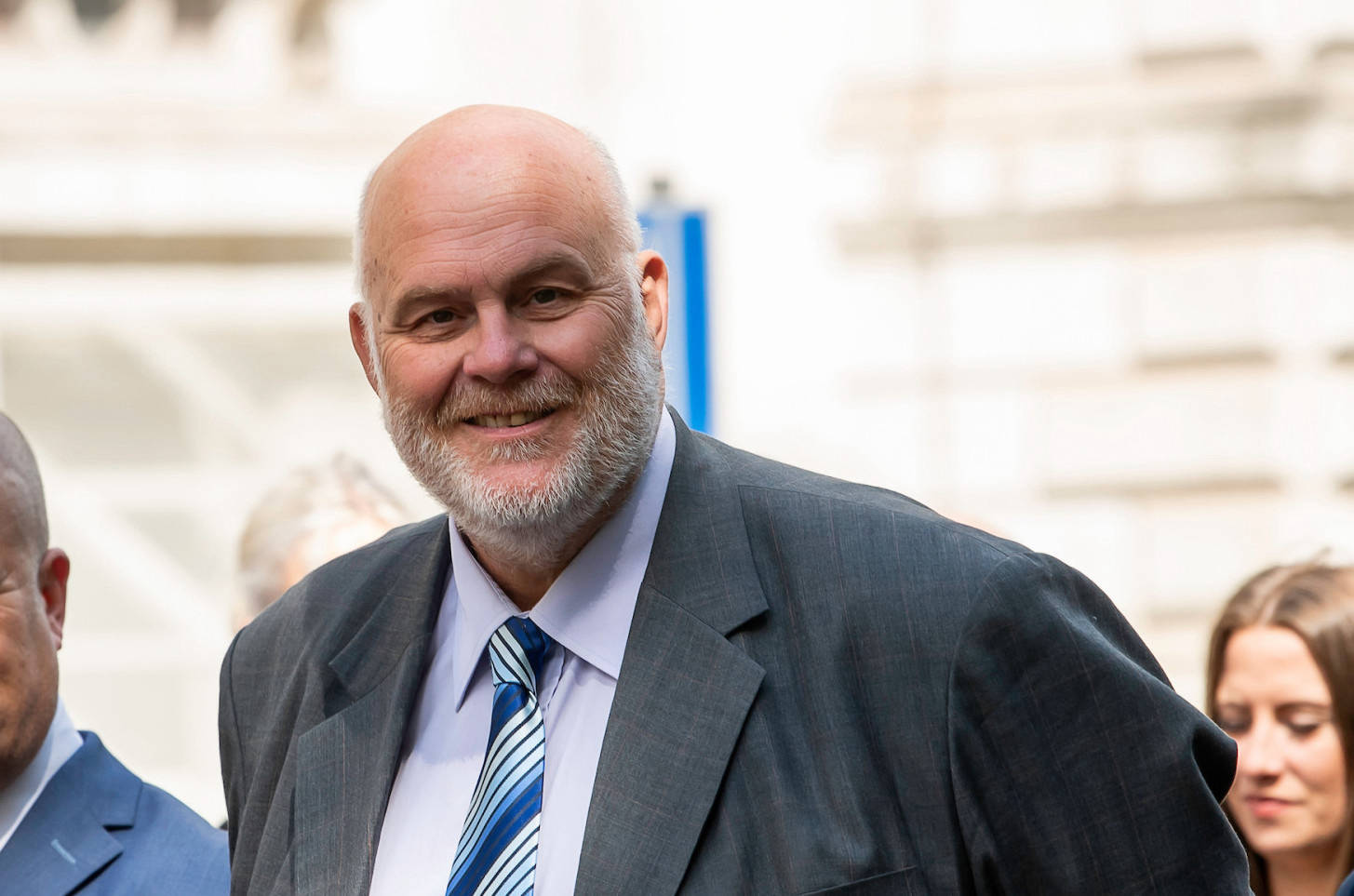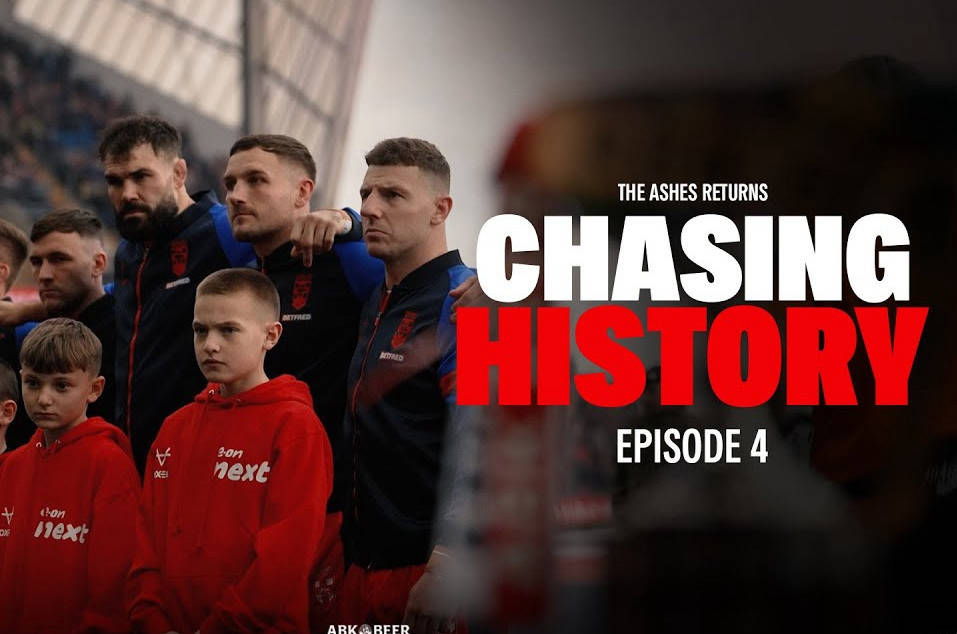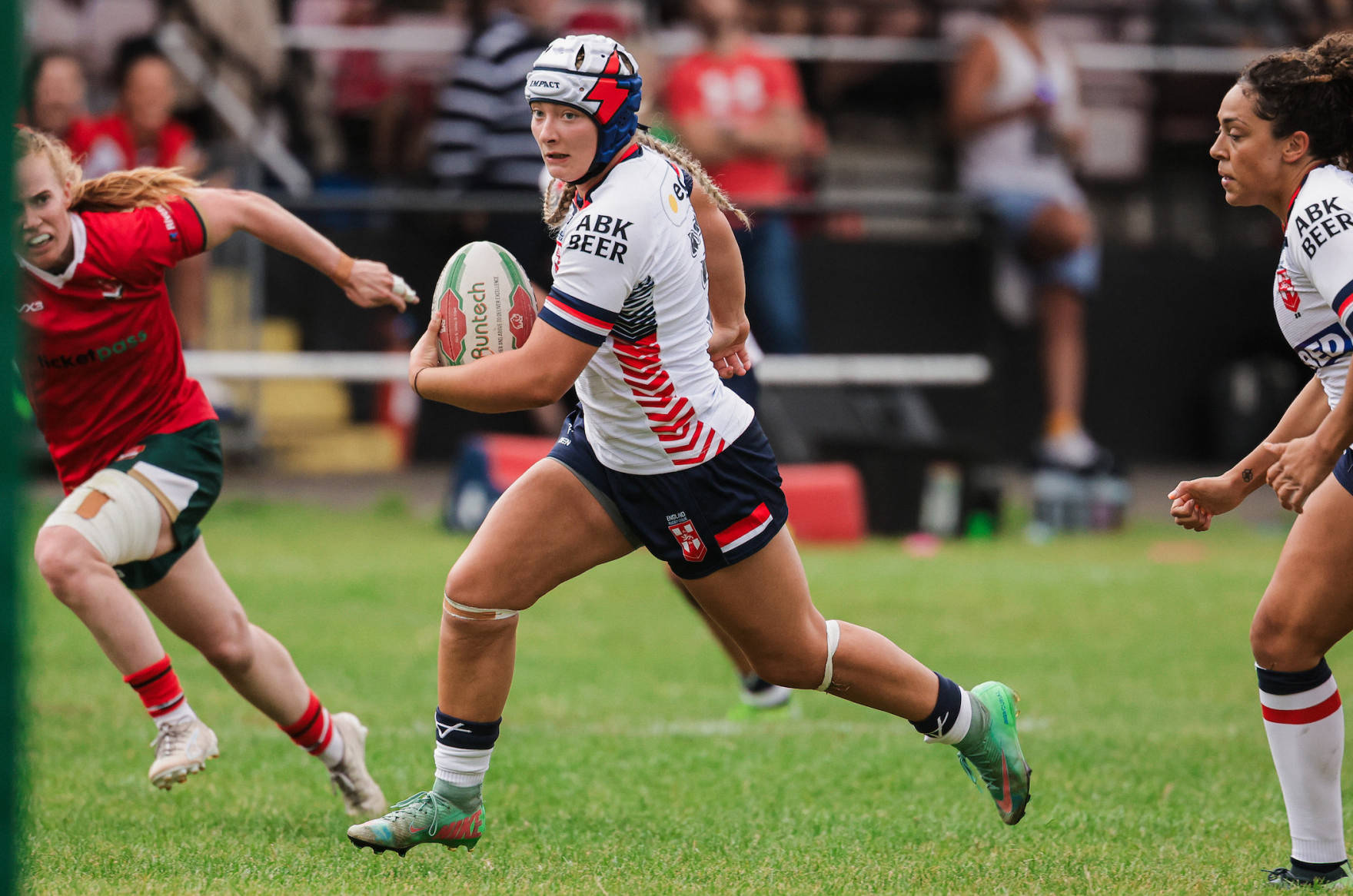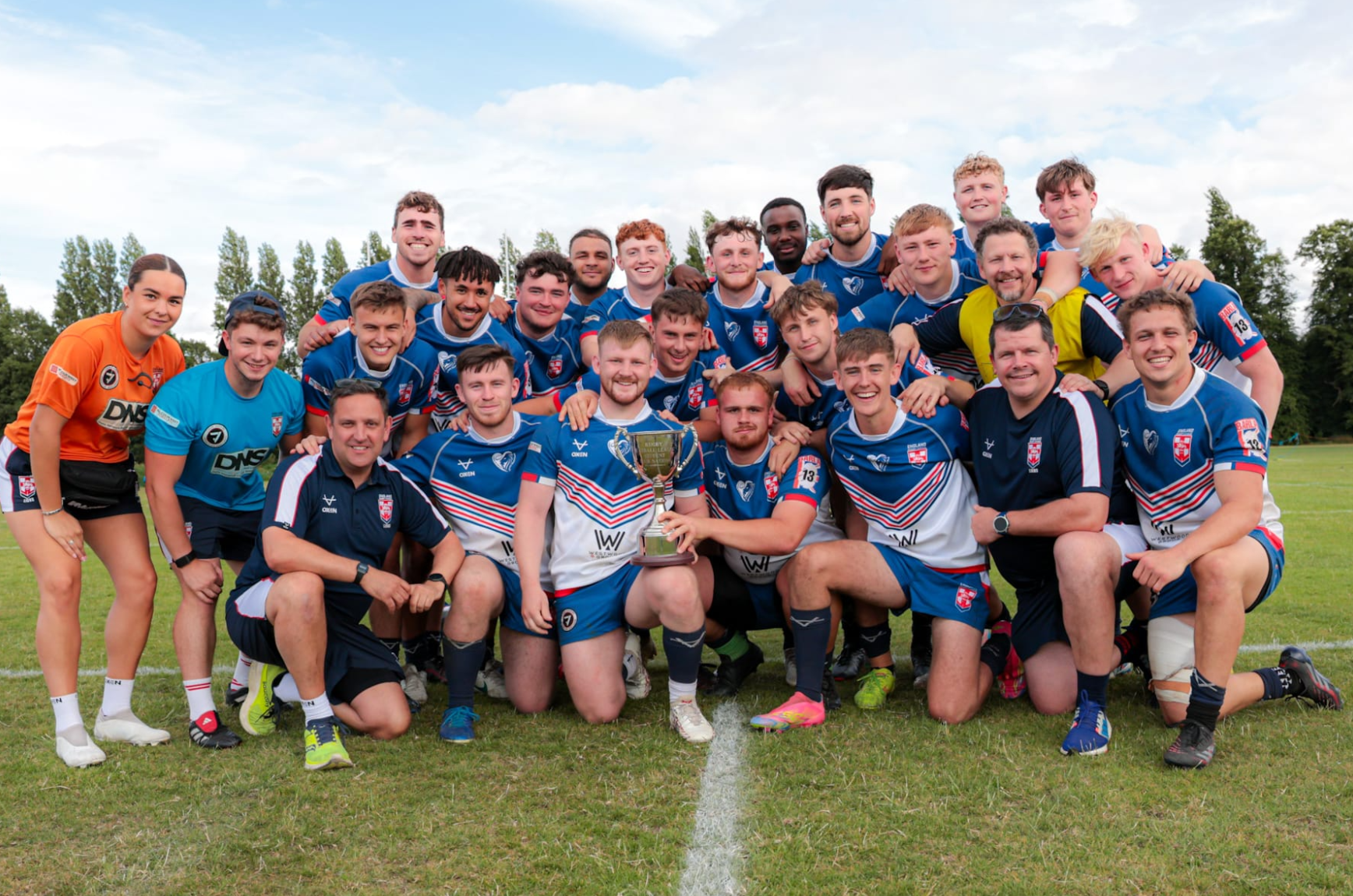
Rugby Football League Chair Nigel Wood sat down for a Q and A with League Express, published in the 17th November edition.
LE How would you assess the State of Rugby League in November 2025?
NW I think we have had an excellent 2025 season, particularly in the Super League. All the key indicators in the Super League are heading in the right direction, viewers up by 50% on 2024, attendances broke through the key average of 10,000 and digital interactions are off the scale from anything seen before. Other areas of the sport need some attention, but the commercial engine of the sport has had a good year.
LE How can you say that with Salford continuing to lurch from winding up hearing to hearing?
NW The situation at Salford is a blight on the sport. I believe that no amount of central RFL regulation will stop some clubs from being poorly run. It happens around many sports. Sheffield Wednesday are currently in administration, for example, while rugby union has lost Wasps, London Irish, Worcester and very nearly Newcastle, all top-tier clubs. So it’s not a specific Rugby League problem. Like other club-based sports, we have well run clubs and some not so well run. The issue for me is whether our rulebook is as proactive and strong as it could be and whether decisions taken 12 months ago, to provide central resource by the then board of directors, however well intended, actually exacerbated the problem. We await the courts verdict on the future of Salford and until then the RFL will work up solutions based on all eventualities.
LE Given the Salford situation, why was it right to go to 14 clubs in Super League in 2026?
NW There is a truism in life, you are either growing or you’re dying but you’re never standing still. The sport has stagnated in recent years, despite this year’s impressive numbers. The reality has been that we’re managing decline. Our clubs concluded that the RFL was following the wrong plan, led by the wrong people, in the wrong corporate structure. The decision to pursue growth was made a top priority, but the agenda wasn’t straightforward. The challenge was to start to turn the oil tanker around without making the existing Super League clubs worse off. We have achieved that through finding efficiencies and freeing up resources to move to the front line.
Clubs that applied to join the Super League in 2026, did so on the full and certain knowledge that their share of central income would be less for one season, the level of funding committed to being less than 10 per cent of a Super League club’s turnover. And so, the league was able expand to 14 - eliminating the much unloved loop fixtures from the calendar.
Three new vibrant cities will be added to the Super League fixture list and three new population centres will have access to the highest level of professional Rugby League in the northern hemisphere.
Toulouse is the fourth largest city in France, York a vibrant and wealthy destination city in the north of England and Bradford is the 2025 UK City of Culture with the youngest and fastest growing population in the country. In total there is a combined population of 1.3million across these three new Super League destinations.
LE Will the expansion of Super League lead to increased TV revenues?
NW Broadcast contracts are just like other commercial deals. The key information is how many people are watching and for how long. And like other commercial deals, it is also about market competition.
We will be guided by our Strategic Partners IMG, but the essential objective has to be to get more people watching and generally engaged in the sport for longer. That is the way to move the dial.
LE What will Championship look like in 2026?
NW It will be a single division with clubs playing 24 games with a ten-team play-off. Matching clubs of equal standard with a focus on local derbies has delivered a compelling fixture list that all part-time clubs will relish. The previous structure left rival clubs in different divisions with not enough home games to sustain part-time professional viability. I believe this revitalised Championship structure will provide great entertainment in 2026
LE Your optimism seems at odds with the analysis of Peter V'landys that the Super League is heading for a train crash.
NW Everyone is entitled to an opinion, and I have absolutely no problem with that. And it is true that the central finances around Super League have gone backwards for the last five to six years, specifically due to the reduced value of recent broadcast arrangements, which has placed an ever-increasing burden upon the owners of our individual Super League clubs.
Fortunately, the Super League has never had a stronger or more passionate ownership group and they are unified in their determination to improve the financial attractiveness and performance of the sport. The clubs recognised that the previous RFL Board were not worrying enough about the financial health of the club game. Flagship strategies, including grading, were misaligned, adding unnecessary costs to clubs without being financially strategic. That is why the clubs resolved to make the leadership changes at the RFL earlier in the year. New plans were required, built around growth but with sustainability at the heart. That’s what we are in pursuit of.
LE Is that where the NRL come in?
NW Possibly! Irrespective of any specific financial involvement, which may or may not eventuate, there are only two professional Rugby League authorities on the planet, and there is an imperative for the closest possible international collaboration to be pursued. It’s not Super League v NRL, its Rugby League v the rest of the sporting world. We used to have a World Club Competition that comprised three clubs v three clubs. With the NRL’s very exciting and commendable expansion strategy and global plans, it would be easy to envisage the Middle East, Hong Kong and similar destinations featuring world class Rugby League moving forward. Similarly with international Rugby League. Is there a greater rivalry than England v Australia. We owe it to the sport to build an international calendar around that, if we can.
LE Is the NRL the only show in town as potential investors in Rugby League?
NW It wouldn’t be appropriate to go into details, but what I can say is that Rugby League in the UK is a very investable proposition. Super League is a major spectator sport, played in two G7 countries with a combined population of around 150 million people and it is very well established in both territories. Lots of other sports have attracted external finance in recent years and I’m very confident about our prospects.
LE Were you happy with the recent Ashes Series?
NW 132,000 spectators through the gates, great viewing figures and the revival of a historic series - lots to be happy about. Unfortunately, England’s performance didn’t quite match up to expectations, but a reality check eleven months before the next World Cup sharpened everyone’s perspective and demonstrated the scale of the task ahead. It also shouldn’t be forgotten that this current England squad won the last two Test series and will be itching to get back in the saddle as soon as possible. We look forward to announcing more about next season‘s international plans once World Cup participation details have been finalised and shared.
October and November are great months to be playing international Rugby League in the UK and it is the RFL’s intention to maximise these opportunities annually.
LE What is the future of the England Men’s Head Coach?
NW It is a core RFL policy to conduct a review after all major tournaments or series. You would not expect anything other than that from a responsible governing body. And it would be unfair to speculate on its findings and conclusions prior to this being completed. You can rest assured it will be thorough and decisive.
LE Much has been made about Rugby League’s relationship with Sport England. Is there anything you can tell us?
NW I’m glad you’ve asked me this question as it was the RFL that led the way in introducing independence into its governance model back in 2001, in many ways leading the field long before the Sport England Code of Good Governance came into being. And a very firm commitment to independence remains at the RFL’s very core, which is a position re-emphasised by our shareholders at the last RFL Council meeting.
A code, however, cannot cater for every type of transition arrangement, such as that faced by the RFL when several board members resign at the same time. Sport England is aware of the challenge the RFL faced and it supports the interim plans put into place while the recruitment of permanent replacements is undertaken.
The sport was exceedingly lucky that it could call upon a number of experienced professionals, all passionate and committed to Rugby League, to hold the fort. That they have been doing this and with remarkable energy, insight and vision, all without remuneration, reflects extremely well during these financially constrained times. That is in stark contrast to their predecessors.
I can also confirm that all permanent appointments to the Board will be openly recruited over the next three to four months.
LE Is the Strategic Review nearing its completion? When will it be published?
NW The Review was always an ongoing piece of work. It is a suite of measures designed to turn the sport around and onto an upward trajectory, many of which are already in play. It was never intended to be published as a document to sit on the shelf and gather dust and the implementation of key recommendations will remain an ongoing process - especially in 2027 when new commercial contracts can be entered in to. There will be a report prepared for the RFL Council in December and then it will be about setting that in to motion during 2026.
We have however managed to expedite some very tangible and high-profile changes in time for next season. The expansion of Super League to 14 clubs, the combined Championship and some changes to the Challenge Cup all of which could be done without disruption to existing contractual obligations. But that is just the beginning. We have even more exciting and innovative plans for 2027 when we have more contractual flexibility to discuss and evaluate with broadcast colleagues the optimum season structure for our sport which will include new events and packages to maximise commercial and broadcast revenue.
The RFL’s goal is about putting our clubs first - the people on the front line delivering the week in week out entertainment for our enjoyment. We have to grow our income and fight for attention in an ever crowded and competitive sports marketplace. Rugby League has all the essential qualities that provide great entertainment content. And we will be relentless in re-inventing our sport as might be required to engage with new consumers.




